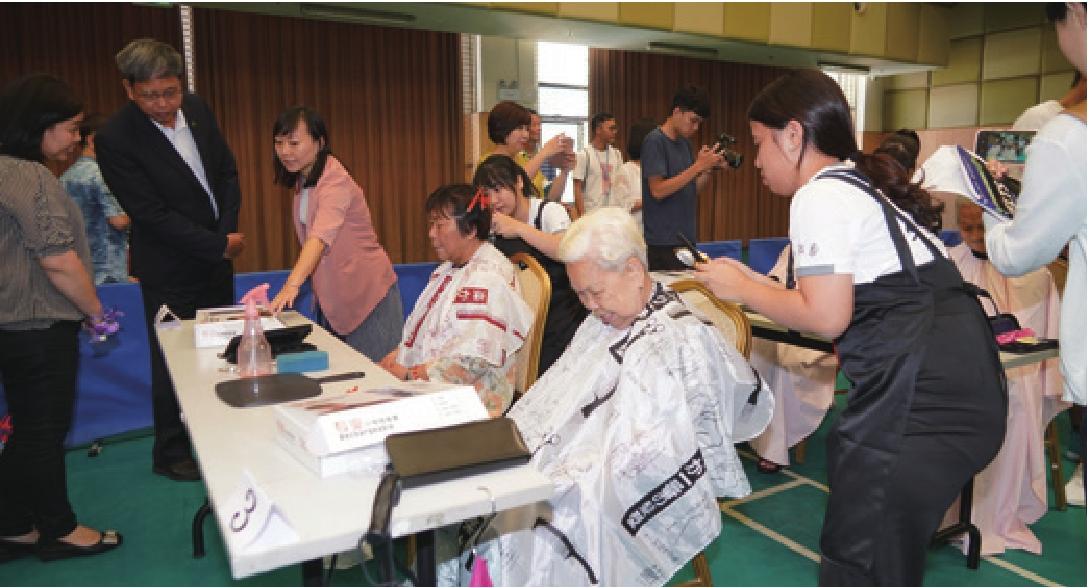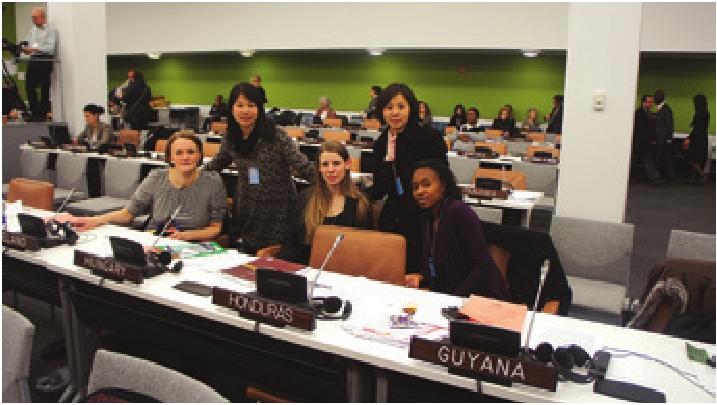SOCIAL STABILIZERS
2019-12-20ByJiJing
By Ji Jing
When the Association of Returned Overseas Chinese Macao was founded way back in 1968, its founding members all regarded Macao as Chinese territory and believed it would return to China from under Portuguese control one day, said Lao Ngai Leong, Chairman of the association.
Two decades later, Macao rejoined the motherland in 1999 and bore out this prophesy.
The thousands of non-governmental organizations (NGOs) in Macao, a unique feature of the region, play an important role in its social life as well as governance.
Chui Sai On, Chief Executive of Macao Special Administrative Region (SAR), told the media on November 21 that NGOs that love the country and love Macao have played an important role in the implementation of the “one country, two systems”policy by helping the SAR government develop the economy and improve peoples livelihood.
Promoting patriotism
During the 1960s and 1970s, Chinese who had migrated to Southeast Asia faced antiChinese sentiment in these countries. Some returned to the Chinese mainland, while others went to Hong Kong and Macao.
The association was founded against this backdrop. “When overseas Chinese returned, they needed to make a living and their children needed education. However, the Portuguese Government set up barriers to restrict their entry into Macao. So some prominent returned overseas Chinese in Macao established the organization to safeguard the rights and interests of returned overseas Chinese,” Lao said.
“We have a very precious photo of the founding ceremony showing the founding members standing solemnly in front of a photo of Chinese leader Mao Zedong and two national flags, even though Macao was under Portuguese rule at that time,” he added.
Today the association is one of the largest NGOs in Macao, with 100,000 overseas Chinese who have returned from over 60 countries. It also functions as a channel of economic and trade exchanges between the mainland, Macao and other Belt and Road participants, utilizing the returned overseas Chinese connections with the countries they had lived in.
Since 2016, it has invited enterprises from Southeast Asian countries such as Indonesia, Myanmar, Cambodia and Singapore to participate in the Guangdong and Macao Branded Products Fair.
The Macao Chamber of Commerce, founded in 1913, is another important NGO in Macao. It has united the industrial and commercial sectors and helped to address many problems as they arise.
Ma Iao Lai, President of the chamber, said when China was sanctioned by the West in the 1950s, his organization, which had good relations with overseas Chinese in countries such as Thailand, Malaysia and Singapore, helped the mainland sell domestic products overseas to earn foreign exchange. Before 1979, when China and Portugal hadnt established diplomatic relations, it was an important communication link between the two countries.
Chan Kam Meng, President of the Macao Federation of Trade Unions (FAOM), recounted how the federation established schools to foster young peoples love for the country.
The association was started three months after the founding of the Peoples Republic of China and upholds patriotism, unity and social welfare as its values.
“Over the past decades, China has become increasingly prosperous through reform and opening up, and has grown in strength. Young people can serve the country only when they have a sense of patriotism instilled in them,” he said.
Improving peoples livelihood
Leong Heng Kao, President of the General Union of Neighbors Association of Macao (UGAMM), explained the historical reasons behind the presence of so many NGOs. When Macao was under Portuguese rule, the Portuguese Government didnt care about the Chinese living in Macao.
Ma said the Macao Chamber of Commerce has played an important role in solving the drinking water problem in Macao. In 1958, it asked Guangdong Province in south China for help and was given permission to build two reservoirs in Guangdong to supply water to Macao.
In Macao, many schools for basic education were established by NGOs.
The Womens General Association of Macao (WGAM), the largest womens organization in Macao founded in 1950, runs eight kindergartens.
“In the beginning, our kindergarten had only eight children and now we have eight kindergartens,” Ho Teng Iat, Chair of the WGAM, said.
One of the purposes of opening the kindergartens was to guarantee women employment. Now 67 percent of women in Macao participate in the labor force, compared to 56 percent before the return.
“Macao women are making contributions to local economic growth. We, as a womens association, should alleviate their burdens. Our kindergartens enroll children starting at 3 months old,” Ho said.
The WGAM has worked to advance womens rights and interests over the past decades. With its efforts, maternity leave in Macao has increased from 35 to 56 days and the association is working to increase it to 70 days.
The FAOM pressured the Portuguese Government to formulate labor laws and regulations to protect workers rights. When Macao returned to the motherland, the unemployment rate was high. The as-sociation collaborated with the Macao SAR Government to train unemployed people to help them find jobs.

The NGOs have actively participated in local governance. For instance, the UGAMM has been sending representatives to take part in Legislative Assembly elections since 1988, many of whom were elected legislators.
“After the return, we have greater responsibility to turn Macao into a better place because we have become the masters of the region. As an NGO, we need to share the governments burdens and convey citizens suggestions to the government to act as a bridge between the two,”Chan said.
Hon Wai, Acting Director of the Social Welfare Bureau (SWB), said Macaos social services have strong support from NGOs. The SAR Government has built a complete social service network with NGOs to serve different groups of people, including the elderly, people with disabilities and children.
The funding provided by the SWB to NGOs increased from $12.4 million in 1999 to $160 million in 2018.

In October, the heads of three NGOs in Macao, the UGAMM, FAOM and WGAM, met Vice Premier Han Zheng in Beijing.
Han acknowledged their important contributions to Macaos prosperity and stability and to the successful implementation of the “one country, two systems”policy. He told them that he hoped for their continued support in Macaos integration with national development strategies.
(Reporting from Macao)
